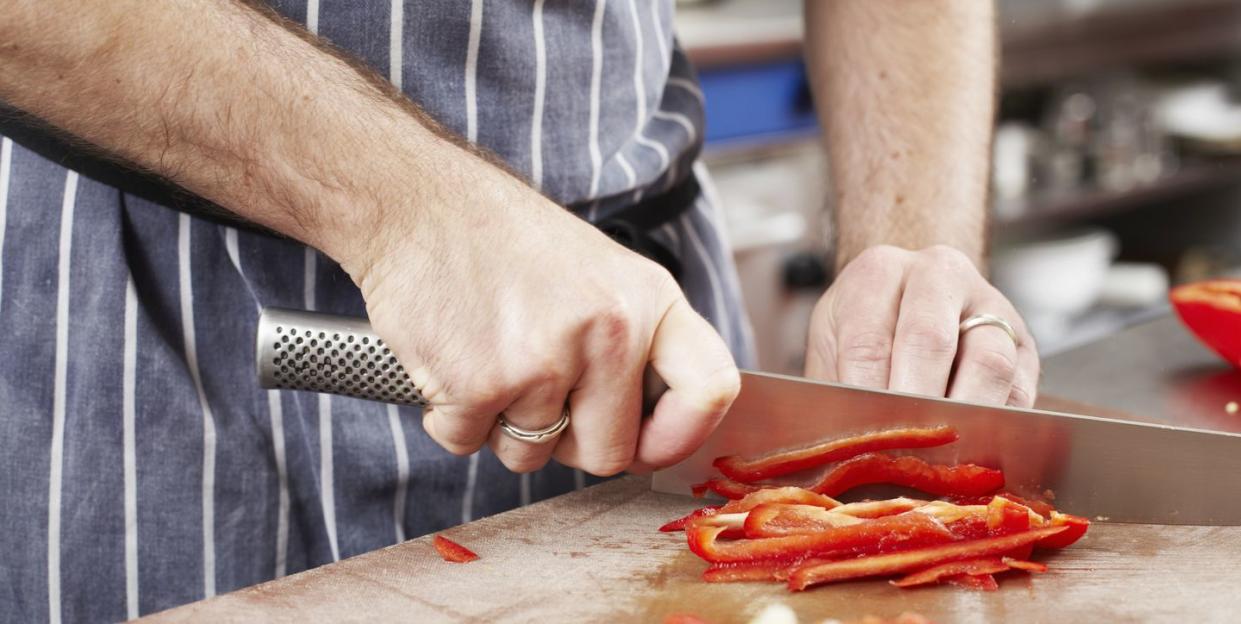What Young Guys Should Do Now to Prevent Prostate Cancer Later

While prostate cancer strikes one in nine men at some point in their lifetimes, guys don't usually think about it until later in life. Now's a good time to not be "usual." Taking these steps now can help prevent that cancer later.
I'm 37, and to prevent the cancer I see cases of nearly every day, here's what I do, and my recommendations for you, too:
Rework what’s for dinner
Becoming more specialized in prostate cancer pushed me to cut down my red meat intake to two or three times a month and eliminate processed meat. There’s good data that doing this, along with eating cruciferous vegetables (broccoli, cauliflower, kale) and foods with antioxidants, may reduce prostate cancer risk. Plus, I enjoy eating these foods anyway.
Stay on the move
Everybody thinks of being active and staying at a healthy weight as helping cardiovascular fitness, but they’re also pretty important for prostate-cancer risk—especially since obesity is linked to a higher likelihood of aggressive forms. There’s no specific protect-your-prostate workout, but at least 150 minutes a week of moderate exercise is associated with a lower risk. I lift weights and run regularly for many health reasons.
Watch more, do less
If I had a low-grade, low- risk prostate tumor, I’d opt for active surveillance, or monitoring it without treatment. For these tumors, plenty of studies show survival rates are just as good as with surgery and radiation, and it avoids the risk of treatment complications. Waiting can cause anxiety when men hear “cancer,” so there’s a movement to call these something like “noncancer.”
Know your family's health history
I just had a patient tell me he didn’t know his dad had prostate cancer until he gave the eulogy. It’s important! If your father or brother had it, your risk is two to three times higher than average. Health topics come up easily in my family, but if your parents aren’t going to bring up medical history, ask.
Find out more about any pills
Some doctors prescribe the drugs dutasteride and finasteride, used to treat an enlarged prostate, off-label to reduce prostate-cancer risk, but they’re controversial. They may reduce risk only for low-grade cancers and can affect libido, cause ED, and maybe enlarge the breasts. For me, assessing my own risk, ethnicity, lack of family history, and desire not to mess with my libido or chest, I don’t take either of them.
Plus: Here's what I tell men about the current prostate cancer screening guidelines
Guidelines for getting a PSA, the blood test that screens for prostate cancer, change as often as movie release dates—researchers don’t agree on the test’s usefulness. The latest advice: If you’re 40 or older and you have more than one first-degree relative (brother, father) who was diagnosed with prostate cancer before age 65, get screened. If you’re 45 or older and African-American, or you’re that age and have one first-degree relative diagnosed before age 65, get screened. If you’re between 55 and 69, decide with your doctor if and when screening makes sense.
Bobby Liaw, MD, is an assistant professor of medicine, hematology, and oncology at Mount Sinai Health System in New York.
You Might Also Like
